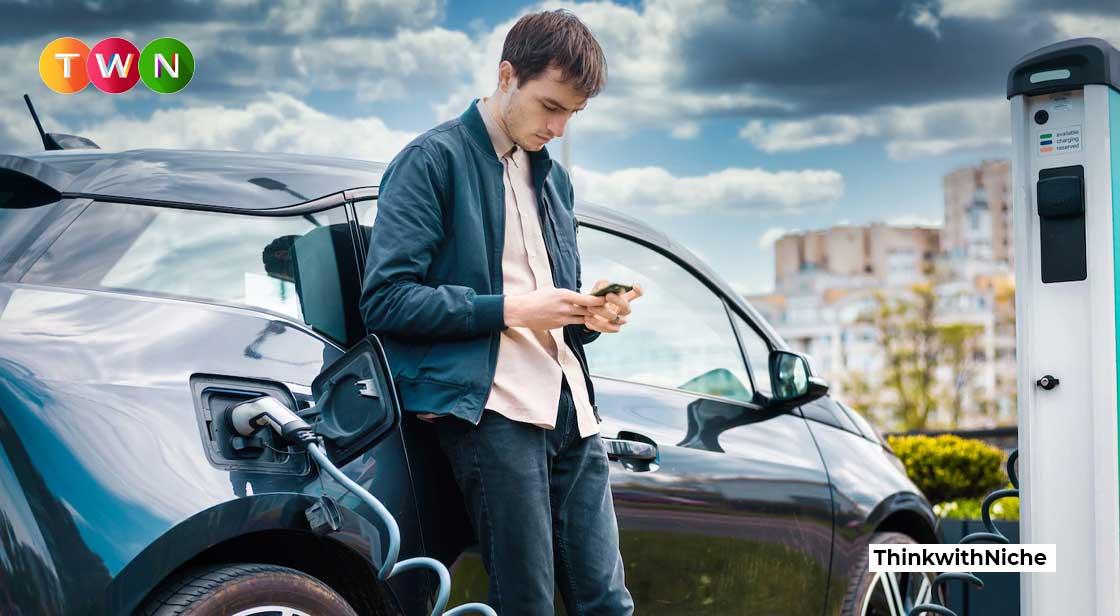Top Alternative Fuels for Cars

Blog Post
Every summer, it happens, and no one likes it. No, we're not referring to farmer's tans or your neighbor deciding that 6 a.m. is a good time to mow the lawn. We're discussing the summer spike in gas prices. The summer of 2008 was one of the worst, with average national gas prices reaching more than $4 per gallon, making filling up the tank something you could only do after first checking your bank account balance.
With the memories of that summer still fresh in our minds and new gas price hikes on the horizon, it's natural to wonder what alternatives to gasoline-powered vehicles exist. As it turns out, there are numerous alternatives. And many of them are currently on the road or in dealerships. While some alternatives will take some time to catch on, here is a list of the top alternative fuels on the road right now. #TWN
For more than a century, the internal combustion engine, whether powered by gasoline or diesel, has dominated the automotive landscape.
However, it does not have an infinite future in its current form because it is still heavily reliant on non-renewable fossil fuels.
A model that is unsustainable due to fluctuating fuel prices.
The government is also under constant pressure to find cleaner ways to fuel cars and has pledged to prohibit the sale of new petrol and diesel vehicles by 2030.
As a result, many future fuels are being proposed to replace today's crude oil-fueled engines, all of which have one thing in common – the ability to be independent of non-renewable fuels.
Best Alternative Fuels for Cars
Here are the nine future fuels that could be powering your car in the coming decades.
- Biofuel
- Electricity
- Steam
- Kinetic
- Heat
- Hydrogen
- Air
- Nitrogen
- LPG
Let's explore the best alternative fuels for vehicles:
1. Biofuel
Biofuels are made from corn and sugarcane, such as bioethanol (which can be used instead of gasoline), whereas biodiesel is made from vegetable oils and animal fats.
Both are intended to replace nonrenewable crude oil-derived fuels.
Second-generation biofuels that are produced from sustainable sources rather than those grown for food are the best.
Many people believe they are the best medium-term solution for sustainable fuels.
2. Electricity
The electric car, which is propelled by a motor and powered by batteries, is gaining popularity, thanks to vehicles such as the UK's best-selling green vehicle, the Nissan LEAF.
However, battery efficiency is still limited, so most offer a maximum range of around 100 miles (and takes several hours to recharge).
Batteries for electric vehicles are also very expensive.
It is a minor disadvantage when compared to the range of economy batteries available for petrol vehicles.
Electric cars are currently the most commercially available solution, with many models ranging from £5,000 to £400,000 on the market today, with Tesla's Model S serving as a landmark example.
3. Steam
Steam cars have been around since the nineteenth century but have since been surpassed by models powered by internal combustion engines.
Some think they can now repay the favor.
They are 'external combustion engines,' which means that the fuel is combusted outside of the engine, lowering emissions.
There are several ideas for modern high-power steam engines in automobiles.
4. Kinetic
Many electric vehicles (as well as an increasing number of internal combustion engine vehicles) have brake energy regeneration systems, which convert braking energy into electric energy.
The use of such systems is expected to increase in the future to better harness a car's moving energy and thus use less fuel overall.
If you're looking for a cheaper alternative to your current vehicle, why not consider trading in for a more fuel-efficient model at RAC Cars?
5. Heat
Two-thirds of the energy produced by gasoline or diesel is lost as heat.
Thermoelectric technology, which converts heat into electricity, can help with this and is already being developed by several car manufacturers.
The use of thermoelectric panels to convert waste exhaust pipe heat into electricity is one solution that can reduce fuel consumption by 5%.
6. Hydrogen
In combustion engines, hydrogen can be used instead of fossil fuels. Only water is emitted by hydrogen cars, which emit no harmful tailpipe emissions.
Critics argue that it shifts energy consumption away from the plant that produces hydrogen and that there is currently no hydrogen refueling infrastructure in place.
BMW, on the other hand, already sells hydrogen vehicles, and it was recently announced that new hydrogen vehicles "will be sold in the UK."
Hydrogen can also be used to generate electricity by powering a fuel cell.
It is widely regarded as one of the best long-term energy sources for automobiles: it emits no emissions and overcomes the limitations of onboard batteries.
However, fuel cell technology is currently prohibitively expensive.
7. Air
In a combustion engine, compressed air can replace gasoline to drive the pistons and generate power.
Air as an energy source is much less energy-dense when stored in 4500psi tanks, but it produces no tailpipe emissions.
Several concepts have been proposed over the years, and some car manufacturers, including Tata, have even proposed mainstream air-powered cars.
8. Nitrogen
High-pressure gas can be produced by heating liquid nitrogen stored in a pressurized tank. It can be used to power both a piston and a rotary engine.
However, liquid nitrogen is a less efficient energy carrier than fossil fuels and requires electricity to produce.
9. LPG
LPG stands for liquefied petroleum gas, a type of 'liquid gas' that can be used as a fuel for a variety of applications, including driving cars.
It was previously burned and wasted on purpose, but it is now recognized as a versatile low-carbon fuel that can be used productively.
Despite its widespread use in homes and businesses, LPG is only used to fuel less than 1% of cars on UK roads.
There are approximately 1,400 LPG refueling stations across the country, according to UKLPG, the UK trade association for the LPG industry, compared to approximately 8,500 filling stations overall.
Best Alternative Fuel Vehicles
Here's a list of the Best Alternative Fuel Vehicles:
- Chevrolet Impala
- Dodge Ram 1500 EcoDiesel
- Honda FCX Clarity
- Toyota Mirai
- Tesla Roadster
- Tesla Model S
- Rimac Concept One
You May Like
EDITOR’S CHOICE












